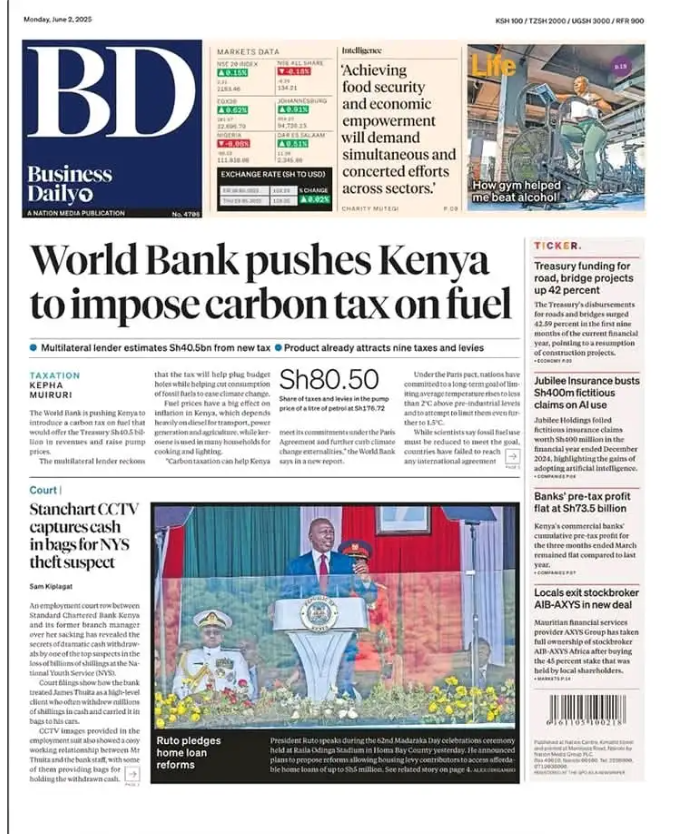Kenyans might as well start bracing for a tougher ride ahead as President William Ruto’s Kenya Kwanza government is set to introduce a new tax that will see the cost of living skyrocket to unimaginable heights.
This time, the pain will come in the name of environmental protection. The government is under pressure from the World Bank to introduce a Carbon Tax on fuel.
If this tax is passed, the ripple effect will be felt in every corner of the economy, from transport to food, manufacturing to electricity. Fuel prices have already become unbearable for ordinary Kenyans, and any further increase will simply worsen an already difficult situation.
According the World Bank, the tax is aimed at discouraging the use of carbon-based fuels as the world focuses more on climate change. The global conversation around reducing carbon emissions has gained momentum in recent years, and the World Bank is now pushing countries like Kenya to adopt green policies.
However, while the intention might be global good, the local impact could be devastating. The new tax will directly raise the price of petrol, diesel, and other fuel products. In turn, matatu fares will go up, food prices will spike, and factories will pass the extra cost to consumers.
The same Kenyans who are already struggling with high taxes on essentials like bread and mobile money will be forced to dig deeper into their empty pockets.

The World Bank estimates that if Kenya introduces this carbon tax, the government could collect as much as Ksh40.5 billion in additional revenue.
This money is expected to help the government deal with its growing financial problems and fill budget gaps. The Ruto administration has found itself in a tight spot, having to borrow heavily just to meet basic spending needs. Introducing new taxes has become a pattern as the government runs out of options.
But what is worrying is that these new taxes seem to target the poor and middle class more than anyone else. While big companies continue to get tax waivers and exemptions, the ordinary Kenyan is left to shoulder the heaviest burden.
This carbon tax may look good on paper, but it comes at a time when Kenyans are already dealing with joblessness, low wages, and a weak economy.
Asking them to pay more at the pump will only deepen their suffering. The question many are asking now is whether this government truly cares about the people or if its only goal is to please international lenders.


